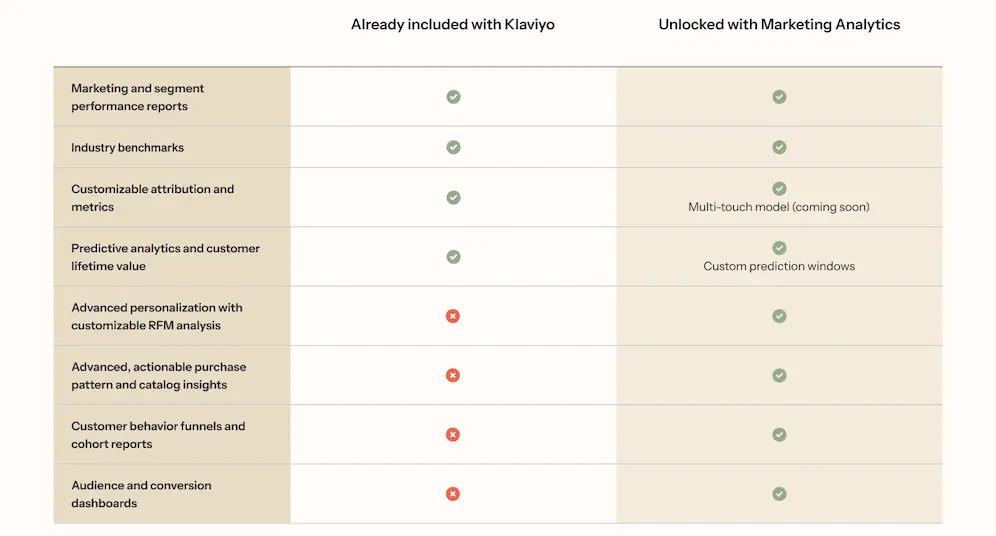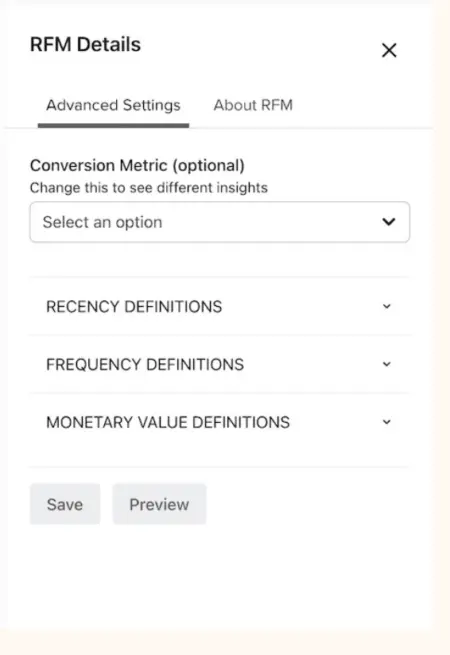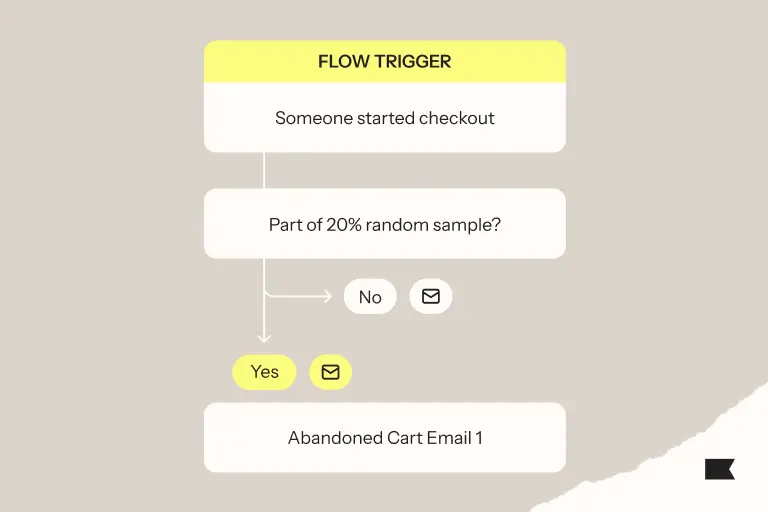Quick wins brands can expect with Marketing Analytics
A marketing strategy can only be as smart as the data it’s based on. A beautifully designed win-back email is a waste of creative resources and energy if it’s not sent to the right people at the right time. The cadence of your abandoned cart flow may be thoughtful—but how detailed is the data you used to determine that cadence?
As director of email marketing at SmartSites, I’ve been onboarding clients to Klaviyo’s advanced Marketing Analytics for the past few months. The upgrade has given us sharper insights, and we’re getting some quick, impressive results after tweaking our strategies.
Klaviyo has always delivered detailed, granular data, but there are some key differences between the performance reports built into Klaviyo Marketing and Klaviyo’s advanced Marketing Analytics:

Here are some quick wins my clients are seeing right away, after only a few months of using Marketing Analytics:
1. RFM analysis pinpoints drop-off—and saves brands money
Recency, frequency, and monetary value (RFM) analysis allows us to assign customer groups based on 3 factors:
- How recently they’ve shopped
- How frequently they’re shopping
- How much money they’ve spent with your brand (Klaviyo offers a default timeline on this metric, but you can create your own as well)
You can set your own percentile definitions for recency, frequency, and monetary value within Marketing Analytics so that your metrics are tailored to your subscribers’ engagement behaviors.

Aside from seeing the complete RFM picture, funnel analysis—a feature within RFM—allows us to pinpoint the exact place the drop-off happens. This is incredibly valuable, as it positions us to strategize even smarter.
If enough people are dropping off at the pop-up stage, we know to re-vamp that experience. If people are flying through the pop-up process but dropping off after abandoning their carts, we know our cart abandonment automation needs work.
Mike Wargent, founder of Orange Creative Co in New South Wales, Australia, uses Klaviyo’s RFM categories to help brands segment smarter—and ultimately save precious revenue.
First, he builds out a matrix that overlays a customer’s RFM segment with their email engagement.
- Tier A —people who opened an email in the last 60 days and/or have bought more than 3x in the last year.
- Tier B includes people who have opened an email in 61–120 days, or have bought something at least once in the last 6 months.
- Tier C includes those who have opened an email in the last 120–180 days or have bought something at least once in the last year.
- Tier D – people who haven’t opened an email in the last 180 days but have opened an email in the last 365
- Tier E includes people who haven’t opened an email in the last year.
These engagement segments are overlaid with RFM segments to reach those who are engaged with email and have lapsed financially (or have room to grow financially with the business) and avoid sending heavy discounting to the top RFM groups.
“The advantage Marketing Analytics gives us is seeing it broken out that way, with both the RFM segment and their email engagement,” Wargent explains. “With that kind of view, we can send more aggressive discounts exclusively to the people who need it.”
“During a busy period like BFCM, we don’t waste money giving discounts to champions or highly engaged customers,” Wargent adds. “As a result, those brands didn’t suffer through the December dip.”
During a busy period like BFCM, we don’t waste money giving discounts to champions or highly engaged customers. As a result, those brands didn’t suffer through the December dip.
Using RFM analysis based on Klaviyo data is so powerful, in part, because, in my experience, the data itself is better than other platforms on the market.
2. Customers changing RFM groups triggers an automation, giving a more layered approach to re-engagement
Once a customer changes into a different RFM group—for instance, “needs attention”—they’ll get your retention flow, which has proven to be a great complement to our typical win-back approach.
Typically, you may configure your win-back flow based on a time interval of a certain number of days from their last purchase.
But when you’ve got RFM analysis, you can take into account your subscriber’s website activity and email engagement to better determine the best time to send a win-back email. The RFM analysis makes your retention flow much more personalized and effective.
3. Product analysis lifts AOV + makes post-purchase flows laser-focused
The product analysis feature, under Catalog insights, shows us the specific amount of time between purchases for specific products.
One brand I work with would reach out to customers 30 days after giving them a beauty cream sample. After looking at the data in product analysis, it turned out that most people were ready to buy after only 15 days.
And my agency is not alone in using this feature to refine the content and timing of post-purchase flows. Wargent also uses product analysis to determine the most likely cross-sells and follow-up sales. Once that’s clear, he says, the “post-purchase flow gets much more effective.”
“Catalog insights completely transformed our 2025 strategy,” says Joshua Behr, CEO of AMB Interactive. “This feature shows the shopper items that people are mostly likely to add to the purchase they’re in the process of making. It helps us drive onsite revenue and lift average order value.”
Catalog insights completely transformed our 2025 strategy. It helped us drive onsite revenue and lift average order value.
4. A full upgrade to Advanced KDP helps build personalized website experiences
For brands that want to go beyond the capabilities of Marketing Analytics and upgrade to the advanced edition of Klaviyo Data Platform, the results are even more powerful.
Nextbase sells dash cameras globally, and after using Klaviyo for a few years, their web manager, Rory McMenigall, was looking to leverage his customer data to create a more sophisticated web strategy. “We wanted to segment as much as possible and build different experiences to improve customer lifetime value,” McMenigall says.
Advanced KDP integrates seamlessly with Shogun’s Targeted Experiences, making it possible for Nextbase to personalize and test onsite experiences for all their website visitors. Before they installed the integration, their homepage showed their hero product to every customer. Now, Nextbase is able to show existing customers personalized product recommendations that complement previous purchases.
The dynamic personalization and smart up-selling journey have improved click rates by 23% and conversion rates by 122%.
It’s insights like these that have helped us understand our customers more deeply. And it’s deep understanding that leads us to sharper, more successful marketing strategies. “It doesn’t take much time and effort to be able to do these things in an instant,” Behr says.
The better your data, the better your strategy. Klaviyo’s Marketing Analytics and Advanced KDP give my team and me the best data to create the results that every brand wants.



